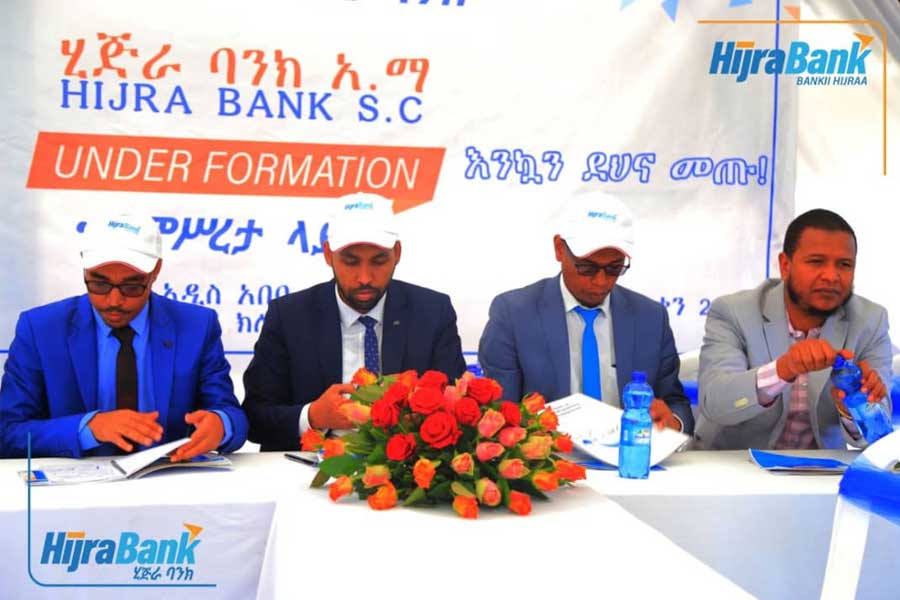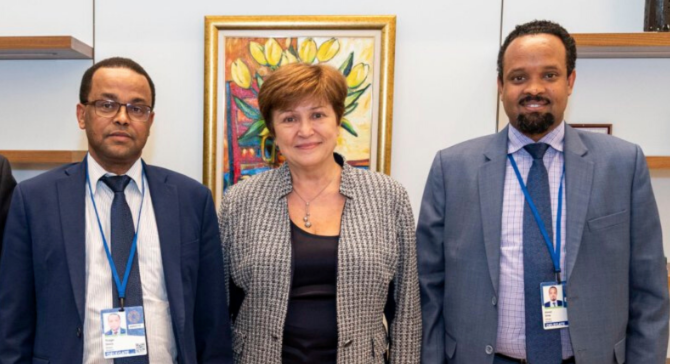
Fortune News | May 02,2020
Jul 6 , 2019
By Haben Mehari
Poverty is lurking, contributing to bitterness in the heated, all-consuming political mudslinging we experience in our public discourse. The country needs to turn its focus to its youth and the economy, writes Haben Mehari, an entrepreneur and a graduate student at Addis Abeba University. He can be reached at haben.mehari@aiesec.net.
The recent assassinations of senior government and military officials should give our nation a chance to reflect. The role of politics and political analysis in our daily life has risen to ever greater heights. Just flipping through our local television channels or walking past newspaper and magazine stands clearly shows this phenomenon. Social media is even more extreme, so much so that the government had to completely turn off internet services for most of the country in order to contain the fallout from the murders. We need to shift the mentality of our young people from politics to economics.
Professor Mohammed Yunus, Nobel Peace Prize laureate and founder of Grameen Bank, argues that “poverty is a threat to peace.” He founded Grameen Bank with a loan of 27 dollars from his own pocket. Grameen Bank is now a microfinance institution that gives loans to the poor and currently has around nine million borrowers. The philosophy of the bank is that the widespread availability of credit can solve many problems. I agree with this view.
Ethiopia is a low-income economy, and a common source of credit here is borrowing from family or friends and “equib” (a form of social credit where friends or neighbours collect and lend money to each other).
Access to credit is also tricky for those living in the capital. With the price of automobiles and houses continually increasing, some have become resigned to the fact that they will never own these properties in their lifetime. This might soon change with the coming financial liberalisation and the entry of foreign banks into the country. Recently, Kenyan and Egyptian banks announced that they will be opening branches in the country very soon.
Academic research on the topic of foreign bank entry shows that foreign bank entry helps promote competition between banks. They do this by pressuring other banks to lower their costs and their spreads. This results in increased credit availability and enhanced financial development in the host country. Access to affordable credit is a great need in the country, but it comes with its own challenges.
There is a limited understanding of finance in Ethiopia. Without an understanding of basic financial concepts, availability of credit and new vehicles of investment might ruin some. Borrowers who default on their debt may be forced to sell assets that they hold dear to pay back loans. This has been true in Sub-Saharan Africa where microfinance has boomed. This has also produced ill-willed lenders offering easy access to credit to the detriment of low-income client’s financial wellbeing. This is leading to client over-indebtedness in many African countries. Financial literacy is critical if we are to avoid this challenge in the future.
Financial literacy is the possession of skills that allows people to make smart decisions with their money. This is the ability to understand how money works, process financial information and make informed decisions. Financial planning, wealth accumulation, debt and retirement savings are critical issues addressed in financial literacy.
People who have a lower degree of financial literacy tend to borrow more and accumulate less wealth. They are less likely to invest and more likely to experience difficulty with debt. Research about African households showed even though they earned a reasonable income, they are not financially well off. The cost of financial ignorance is high, leading many people to incur avoidable charges. Many loan users do not fully understand the concept of compound interest and how it can inflate the total amounts owed to the financial institutions.
Financial education can benefit consumers of all ages and income levels. For young people beginning work, it can provide an essential tool for budgeting and saving. For people with low-income, it helps make the most of what they have. To be financially literate will help the country secure the future of the next generation.
Higher financial literacy leads to a more efficient allocation of savings by attracting more investment and growth in the country. Higher literacy rates will also empower people to find better returns on their money. This will induce greater participation if a stock exchange is established.
For Ethiopia to flourish, our youth must be prepared for success. I believe that in order to change their mindset, we must start financial education early. Knowing how to manage money can empower us to become critical thinkers. By making connections between financial literacy and well-being, Ethiopians can learn early on how their choices and behaviours affect themselves, their family and others in their community. They will take measured and calculated action for their future wellbeing, and the nation will be better off because of it.
PUBLISHED ON
Jul 06,2019 [ VOL
20 , NO
1001]


Fortune News | May 02,2020

Radar | Jul 09,2022

Radar | Sep 27,2025

Radar | Jul 13,2020

Featured | Aug 10,2019

Radar | Jan 19,2019

Radar | Mar 21,2020

Fortune News | Dec 14,2019

Commentaries | Jun 29,2024

Radar | Nov 09,2024

Photo Gallery | 177729 Views | May 06,2019

Photo Gallery | 167942 Views | Apr 26,2019

Photo Gallery | 158631 Views | Oct 06,2021

My Opinion | 136996 Views | Aug 14,2021
Commentaries | Oct 25,2025

Dec 22 , 2024 . By TIZITA SHEWAFERAW
Charged with transforming colossal state-owned enterprises into modern and competitiv...

Aug 18 , 2024 . By AKSAH ITALO
Although predictable Yonas Zerihun's job in the ride-hailing service is not immune to...

Jul 28 , 2024 . By TIZITA SHEWAFERAW
Unhabitual, perhaps too many, Samuel Gebreyohannes, 38, used to occasionally enjoy a couple of beers at breakfast. However, he recently swit...

Jul 13 , 2024 . By AKSAH ITALO
Investors who rely on tractors, trucks, and field vehicles for commuting, transporting commodities, and f...

Oct 25 , 2025
The regulatory machinery is on overdrive. In only two years, no fewer than 35 new pro...

Oct 18 , 2025
The political establishment, notably the ruling party and its top brass, has become p...

Oct 11 , 2025
Ladislas Farago, a roving Associated Press (AP) correspondent, arrived in Ethiopia in...

Oct 4 , 2025
Eyob Tekalegn (PhD) had been in the Governor's chair for only weeks when, on Septembe...

Oct 25 , 2025 . By YITBAREK GETACHEW
Officials of the Addis Abeba's Education Bureau have embarked on an ambitious experim...

Oct 26 , 2025 . By YITBAREK GETACHEW
The federal government is making a landmark shift in its investment incentive regime...

Oct 27 , 2025
The National Bank of Ethiopia (NBE) is preparing to issue a directive that will funda...

Oct 26 , 2025 . By SURAFEL MULUGETA
A community of booksellers shadowing the Ethiopian National Theatre has been jolted b...